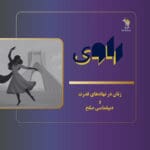
Across professions and provinces, Iranian women practice diplomacy every day in classrooms, clinics, and courtrooms; in NGOs, labor unions, and underground movements; through journalism, environmental activism, and cultural work. These women may not hold official titles, but they shape public discourse, challenge systems of power, and keep hope alive where institutions have failed.
Within formal institutions as well, there are women working to create change from inside a political system that remains deeply patriarchal. From parliament and city councils to sectors that may seem apolitical, like education and healthcare, women are present. Yet they face a dual challenge: on one side, a political structure that confines them to symbolic roles; on the other, a civil society that expects them to drive real change.
How much impact can the few women who enter official power structures in Iran truly have? And how can their presence, combined with grassroots civil activism, help pave the way for a nonviolent transition to democracy?
In this second part of the discussion on women and politics, Sahar Nasseri and Nazila Golestan are joined by Dr. Saeed Peyvandi, sociologist and university professor based in France, to examine the influence of Iranian women in politics, governance, and peacebuilding efforts.
The Ravi–HamAva podcast series is committed to fostering national dialogue around universal values: democracy, secular governance, human rights, sexual equality, and the protection of Iran’s territorial integrity. Within this framework, we believe we can move through collective wisdom toward a free and dignified Iran for all Iranians, regardless of belief, opinion, sexuality, ethnicity, or background.
“A government of the people, by the people, for the people.”
